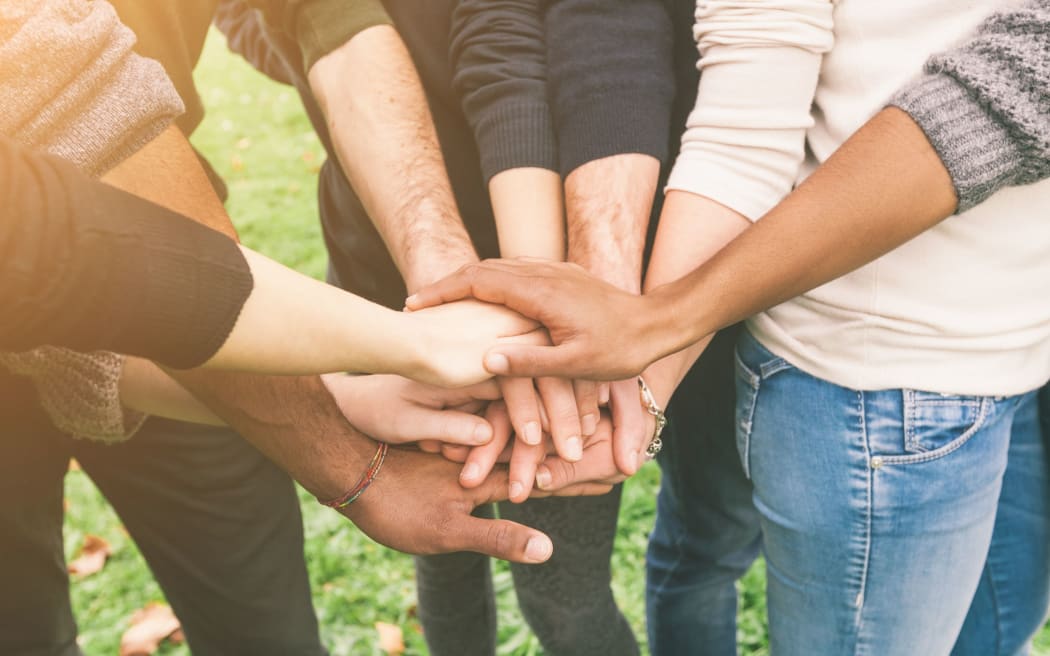In his academic and professional career Australian clinical psychologist Zac Seidler has focused on understanding men's mental health and masculinity, reducing male suicide and the benefits of mateship.
Through his research, he advocates for a change in the way we think about treating men's distress, and also stresses the need to create mental health services that account for masculinity.
This has lead to the ground-breaking training program Men in Mind for mental health clinicians, aimed at better understanding and responses to men's anguish and suicidality.

Photo: 123RF
Dr Seidler is currently the Director of Mental Health Training at Movember and a Senior Research Fellow with Orygen at the University of Melbourne.
The idea that men are not willing to talk or emote is untrue, Seidler tells Nine to Noon.
“I started out much of my research looking into that question to understand, is it actually the case that men don't have this skill set?
“And what became abundantly clear very quickly, is that they do, it just looks very different, it feels very different and it's expressed very differently.”
Movember aims to upskill practitioners GPs, psychologists and psychiatrists to open up lines of communication and start asking what men need, he says.
“We need to make sure that we're offering something that hits the mark, we found that many of these men who come in to seek help drop out prematurely, over 40 percent of these guys come in, they have a pretty bad time, and they leave prematurely.
“And that's really, really dangerous, because it takes us so much effort, time money to get these guys in in the first place, that we really shouldn't be losing them.”
When practitioners make assumptions about men it can become a self-fulfilling prophecy, he says.
“Many of these men just live up to the stereotypes, they live up to these tropes, because they think that that's just the way that it's supposed to be, and they actually mute or turn down many of those parts within themselves - that vulnerability, that softness, whatever it may be, that has been stigmatised, or bullied out of them over time.”
Choice of language is important in these conversations, he says.
“When we talk with lots of these clinicians, I try to educate them on the idea that there is a different way of expressing distress.
“Whereas depression stereotypically is really internal. It's this notion of being hopeless and sad and tearful and all of these emotions that if you actually describe it to a man, you give them a scale, they'll just say 'nah, nah nah' on all of these.”
Expanding the conversation into other areas can be more fruitful, he says.
“You go, all right, have you been feeling irritable? Have you been feeling frustrated and angry and violent potentially? Have you been misusing substances and drinking too much?”
Overtime men can lose the ability to describe emotions, he says.
“There is, over time, a pulling out of this language for men. And it gets to the point where when they become adults, they don't actually have access to many of these emotional words.
“So, something that we do a lot of is trying to rebuild that capacity, that skill set, to show men that there are more words than feeling crap, or feeling blue, or whatever it may be.”
Boys are assumed to have a more limited emotional spectrum than girls, but this again a false, Seidler says.
“There's something that happens when boys are really young, we often say our boys’ emotional spectrum just isn't as wide as young girls. And it's actually not the case, it's actually broader.
“Anyone out there who's got a young boy, who's got a toddler, they'll know that boys can throw just as much of a tantrum as a young girl can.
“So, it's not that there's anything biological or innate around the emotion of boys that is somehow languishing. Instead, they get to the age of five or six, and you start to witness that whereas they had a very similar emotional spectrum to the young girls over time they actually lose both sides of that spectrum, whether it be joy, or whether it be sadness, and it gets slowly and slowly a bit tighter to the point where there's really just this nugget of discomfort, irritability, anger that's left and allowed to be expressed.”
The good news is that emotional vocabulary can be re-built, it just requires time, he says.
“What I tell lots of clinicians, is don't rush those first three sessions, if you're a GP, don't force this stuff out of them, because it doesn't come naturally necessarily.
“Assuming that there's something wrong with them is the problem, rather than assuming, actually, he's not trying to withhold this from me, he wants to get better eventually.”
Although a generalisation, it tends to be true that men are less skilled at building friendships, he says.
“When you go and look at these longitudinal studies in out of Harvard, where they've followed 100 guys since they were in their teens in the 1930s, all the way up until today, the ones who are still alive are the ones who had meaningful, strong social connections.
“And it's not a matter of how many they had, it's a matter of the strength of those, the meaningfulness of them. It didn't matter if they were obese, if they smoked, if they had good friends - that is the thing that kept them going.
“And that just says so much about humanity. And I hope that says a lot to the men out there listening, which is friendship is literally life-saving.”

